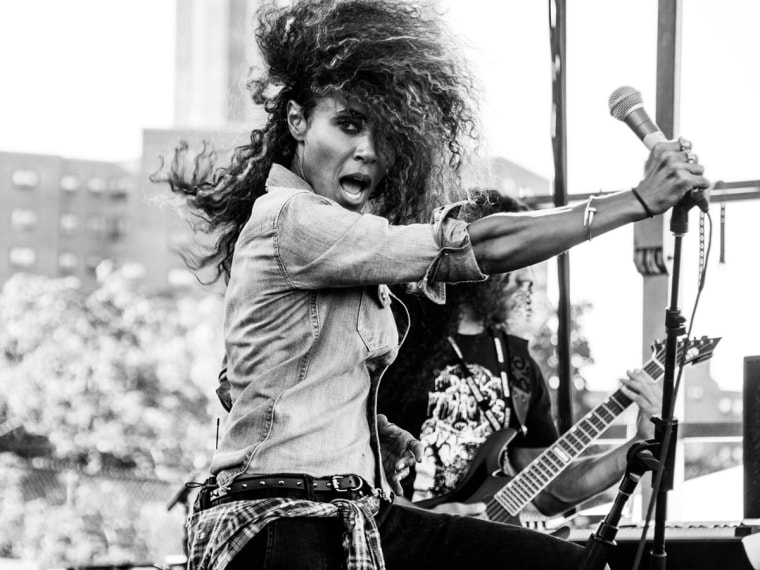To be black and to love punk rock is to navigate two worlds that don’t typically intersect, but AFROPUNK Fest has been doing just that since its genesis in a dingy Lower East Side club for black youth. Founded by Matthew Morgan and James Spooner, the festival grew out of the duo’s 2003 documentary, Afro-Punk, which explored the narratives of black youth who identified with the punk rock subculture. Inspired by those narratives, Morgan and Spooner created AFROPUNK Fest to unify these marginalized lovers of punk rock.
"I knew there were lots of us," Morgan said. "We were just scattered and we needed something to connect us together."
In nearly a decade of festivals, Morgan and Spooner have done that and more. Year after year the festival proves that it’s possible to make so many men and women of color feel at home in a community that fully realizes their cool.
AFROPUNK has grown into the second-largest musical festival in Brooklyn. The festival marked its ninth anniversary last weekend, drawing a multigenerational crowd of 28,000 fans to Fort Greene’s Commodore Barry Park. Concertgoers enjoyed three music stages, 30 local food trucks, a rock climbing wall, a skate park, and an artist marketplace. The festival drew mainstream names like DJ (and drummer for the Roots) Questlove and Jada Pinkett Smith, the actress who performed with her nu metal group Wicked Wisdom—and acts like gay bounce artist Big Freedia, hip-hop legend Jean Grae and rap-rock band The White Mandingos.
"When I was coming up in the '80s, if you were a kid of color in 'white' music or 'aggressive' music, you were the odd man out,” White Mandingos lead guitarist Sacha Jenkins told MSNBC in an interview.
Jenkins saw quite a different scene this weekend. "I saw so many different generations of black folk who were interested in participating in a festival that had a broad range of music. The phrase 'Afro Punk' is mildly redundant because there is nothing more punk that being black."
AFROPUNK has grown to embrace progressive hip-hop heads, adult punk rockers, BMX bike riders, skateboarders, '80s vogue queens, and electro dancers. These folks, who typically fall through the cracks of mainstream America and black popular culture, have found a safer and more multicultural space they could call home.
The founders’ quest towards mainstream acceptance has not been easy. "It’s taken time because we were perceived as the weird black people," Morgan said. But engendering a spirit of freedom at the festival continues to motivate Morgan and his team, who worked closely with local police to ensure the crowd felt safe.
That work has paid off for Morgan. "Now, it’s cool to be different and cool to stand out and to be an individual. The core of the audience has grown," he said. "More people come and realize what the energy is and they want to replicate what’s going on--a sense of true freedom."
